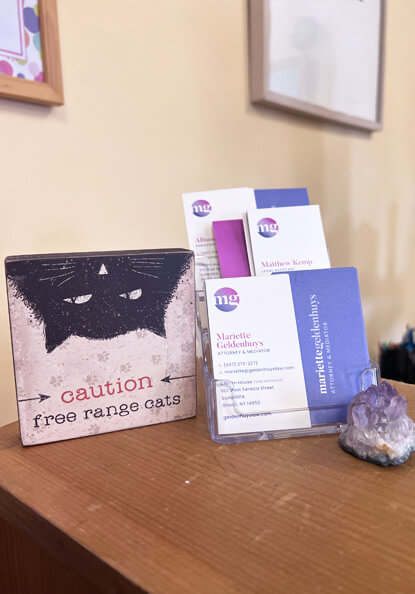Frequently Asked Questions
What legal circumstances is Collaborative Law or Mediation suitable for?
Collaborative Law and Mediation offers clients the option of going through the process of separation or divorce, negotiating custody and support arrangements for children, and negotiating domestic partnership, pre- or post-nuptial agreements in a cooperative, respectful way. These processes are also suitable and effective for any other disputes, such as business disputes, negotiation of business contracts, disputes about estates and issues that arise from real estate contracts.
Does Collaborative Law involve going to court?
The hallmark of the Collaborative Law process is a commitment to work towards a negotiated settlement rather than resort to court. Although it rarely happens, each client retains the right to withdraw from the Collaborative Law process and go to court. If they do so, both parties’ attorneys are disqualified and the parties go to court with new attorneys. This feature ensures a cooperative, confidential negotiating environment, where neither party uses withdrawal or court as a threat and the attorneys are committed to helping the clients reach an agreement.
Is a Collaborative Law approach less costly than going to court?
Clients who choose this Collaborative Law benefit from a generally faster and less expensive process than litigation.
Does Mariette provide legal representation when acting as a Mediator?
In Mediation, the mediator acts as a neutral facilitator to help the parties come to an agreement in a respectful way. The Mediator does not provide legal representation for either party. Typically, the clients and Mediator are the only ones present during the mediation sessions, and clients can seek legal advice from attorneys between sessions and to review and advise them about the agreement.


